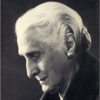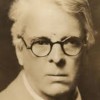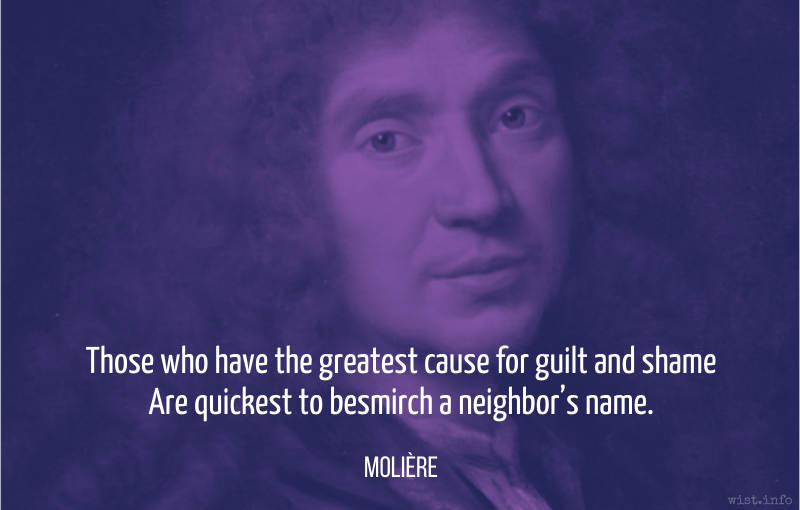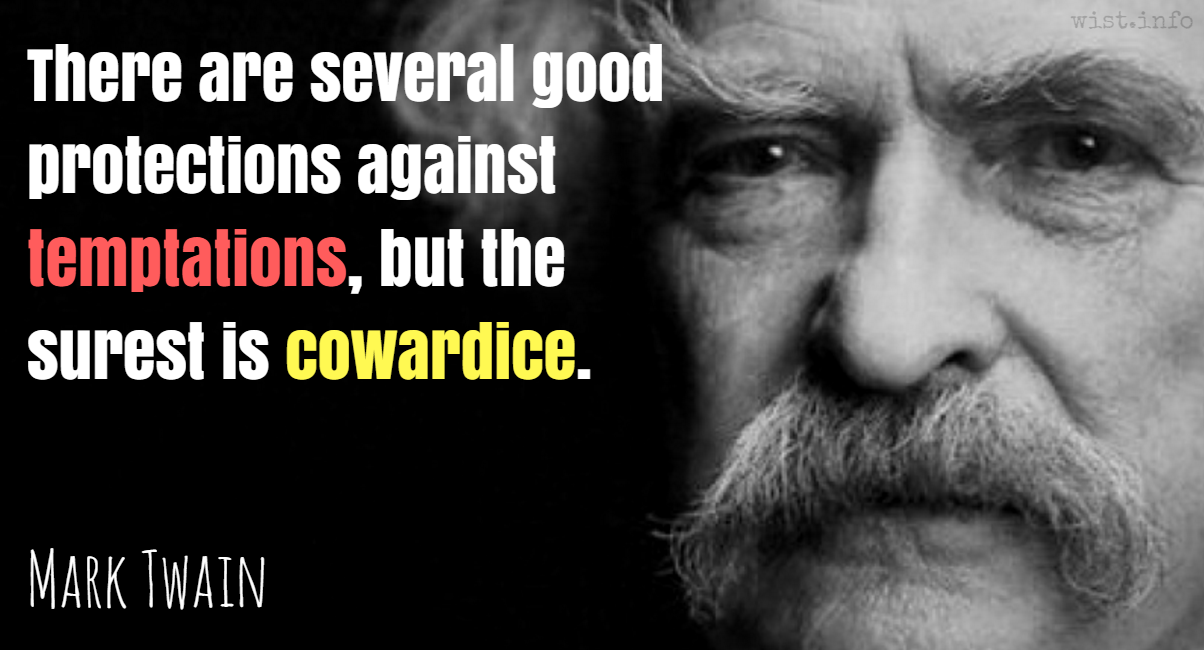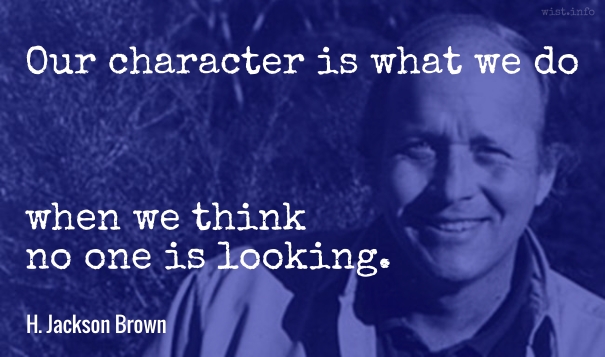And what is shameful if those who do it don’t think it so?
[τί δ’ αἰσχρὸν ἢν μὴ τοῖσι χρωμένοις δοκῇ]
Euripides (485?-406? BC) Greek tragic dramatist
Æolus [Αἴολος], frag. 19 (TGF) [tr. Aleator (2012)]
(Source)
This bit of moral relativism (likely coming from Macareus, the son of Aeolus, who committed incest with his sister, Canace) continues to provoke commentary, thus varied translations. Aristophanes includes a reference to this line in his The Frogs.
Nauck frag. 19, Barnes frag. 5, Musgrave frag. 1. (Source (Greek)). Alternate translations:
But what is base, if it appear not base
To those who practice what their soul approves?
[tr. Wodhull (1809)]
What is shameful, if it does not seem to be so to those who do it?
[Source]
What's wrong if they who do it think not so?
[Source (1902)]
Why shameful, if it does not seem so to those who practice it?
[Source (2018)]
Quotations about:
shame
Note not all quotations have been tagged, so Search may find additional quotes on this topic.
A little embarrassment prevents a lot of goodness.
Mignon McLaughlin (1913-1983) American journalist and author
The Neurotic’s Notebook, ch. 8 (1963)
(Source)
If the gods do a shameful thing, they are not gods.
[εἰ θεοί τι δρῶσιν αἰσχρόν, οὐκ εἰσὶν θεοί.]
Euripides (485?-406? BC) Greek tragic dramatist
Bellerophon [Βελλεροφῶν], frag. 292, l. 7 (TGF) (c. 430 BC) [tr. @sentantiq (2014)]
(Source)
Barnes frag. 112, Musgrave frag. 19. (Source (Greek)). Alternate translations:
But to thee
This I maintain, that if the Gods commit
Aught that is base, they are no longer Gods.
[tr. Wodhull (1809)]
If gods do anything shameful, they are not gods.
[tr. Collard, Hargreaves, Cropp (1995)]
If gods do what is shameful, they are not gods.
[tr. Stevens (2012), frag. 286b]
If the gods do anything base, they are not gods.
[tr. Dixon (2014)]
What is the reason that we laugh so freely in a theatre but are ashamed to weep? Is it less natural to be melted by what excites pity than to burst into laughter at what is comical? […] It is not thought odd to hear a whole theatre ring with laughter at some passage of a comedy, but, on the contrary, it implies that it was funny, and very naturally performed; therefore the extreme restraint every one puts on himself not to shed tears and the affected laughter with which one tries to disguise them, clearly prove that the natural result of lofty tragedy should be to make us all weep without concealment and publicly, and without any other hindrance than wiping our eyes.
[D’où vient que l’on rit si librement au théâtre, et que l’on a honte d’y pleurer? Est-il moins dans la nature de s’attendrir sur le pitoyable que d’éclater sur le ridicule? […] Comme donc ce n’est point une chose bizarre d’entendre s’élever de tout un amphithéâtre un ris universel sur quelque endroit d’une comédie, et que cela suppose au contraire qu’il est plaisant et très naïvement exécuté, aussi l’extrême violence que chacun se fait à contraindre ses larmes, et le mauvais ris dont on veut les couvrir prouvent clairement que l’effet naturel du grand tragique serait de pleurer tous franchement et de concert à la vue l’un de l’autre, et sans autre embarras que d’essuyer ses larmes, outre qu’après être convenu de s’y abandonner.]
Jean de La Bruyère (1645-1696) French essayist, moralist
The Characters [Les Caractères], ch. 1 “Of Works of the Mind [Des Ouvrages de l’Esprit],” § 50 (1.50) (1688) [tr. Van Laun (1885)]
(Source)
(Source (French)). Alternate translations:
What's the reason that we laugh so freely, and are asham'd to weep at the Theatre? Is Nature less subjects to be soften'd by pity, than to burst forth at what is Comical? [...] We must suppose 'tis the natural effect of a good Tragedy, to make us Weep freely in sight of the whole Audience, without any other trouble than drying our Eyes, and wiping our Faces. It being no more ridiculous to be seen Weeping, than to be heard to Laugh by the whole Theatre: On the contrary, we then conclude there was something acted very pleasantly, and to the life; and the restraint a man puts on him∣self to hide his tears, by an affected Grimace, plainly demonstrates that he ought not to resist the main design of a Tragedy, but give way to his Passions, and discover em as openly, and with as much confidence, as at a Comedy.
[Bullord ed. (1696)]
What is the reason we laugh so freely, but are asham'd to weep at the Theatre? Is Nature less subject to be soften'd by Pity, than to burst out into Laughter at what is Comical? [...] As therefore 'tis thought no odd thing to hear the whole Amphitheatre ring with an Universal Laughter, at some passage of a Comedy; butr on the contrary, implies something was pleasantly said, and naturally perform';d; so the extreme violence which every one offers to himself in constraining his Tears, and disguising ;em with affected Grimaces, clealry prove that the Natural Effect of good Tragedy is to make us weep with all freedom, and in concert, in another's sight, and wihtout any other disturbance than wiping our Eyes.
[Curll ed. (1713)]
Why is it that we laugh so freely at the theatre and yet are ashamed to weep there? Is it less natural to be moved by what is pitiful than to be amused by what is ridiculous? [...] Since then it is no unusual thing to hear a whole theatre break into unanimous laughter at some passage in a comedy, since this implies, on the contrary, that it is amusing and extremely life-like, so the extreme violence we do to our feelings by restraining our tears, and the false laughter with which we try to conceal them, clearly proves that the natural effect of great tragedy should be to make us all weep quite openly, with one accord, in one another’s presence, with no further concern than to wipe our eyes.
[tr. Stewart (1970), "Of Books"]
Civilization has taught us to eat with a fork, but even now if nobody is around we use our fingers.
Conscience makes cowards of us all. Politeness is even worse. It makes actors of us.
H. L. Mencken (1880-1956) American writer and journalist [Henry Lewis Mencken]
A Little Book in C Major, ch. 2, § 26 (1916)
(Source)
Not reprinted in later works.
Do not be deceived by appearances. The virtue of a man is not to be measured by what he does while his wife is watching.
H. L. Mencken (1880-1956) American writer and journalist [Henry Lewis Mencken]
A Little Book in C Major, ch. 1, § 19 (1916)
(Source)
If men knew how to blush at their own actions, how many crimes, and not only those that are hidden, but those that are public and well known, would never be committed!
[Si l’homme savait rougir de soi, quels crimes, non seulement cachés, mais publics et connus, ne s’épargnerait-il pas!]
Jean de La Bruyère (1645-1696) French essayist, moralist
The Characters [Les Caractères], ch. 11 “Of Mankind [De l’Homme],” § 151 (11.151) (1688) [tr. Van Laun (1885)]
(Source)
(Source (French)). Alternate translations:
If men could blush at their own actions, how many sins, publick and private, would they save by it?
[Bullord ed. (1696)]
If Men knew how to blush at their own Actions, how many Crimes, publick and private, would they save by it!
[Curll ed. (1713)]
If Men could blush for themselves, how many Sins, public and private, would they save by it!
[Browne ed. (1752)]
If a man knew how to blush at his own actions, what crimes, not only secret but public and overt, would he not spare himself!
[tr. Stewart (1970)]
People feel shameful to be poor and underprivileged in a well-run country. You should feel shameful if you are rich and aristocratic in a decadent and corrupt country.
[邦有道、貧且賤焉、恥也、邦無道、富且貴焉、恥也。]
Confucius (c. 551- c. 479 BC) Chinese philosopher, sage, politician [孔夫子 (Kǒng Fūzǐ, K'ung Fu-tzu, K'ung Fu Tse), 孔子 (Kǒngzǐ, Chungni), 孔丘 (Kǒng Qiū, K'ung Ch'iu)]
The Analects [論語, 论语, Lúnyǔ], Book 8, verse 13, sec. 3 (8.13.3) (6th C. BC – AD 3rd C.) [tr. Li (2020)]
(Source)
Brooks (below) says that this analect was added into Book 8 at the time of Book 14 being produced.
(Source (Chinese)). Alternate translations:
When a country is well-governed, poverty and a mean condition are things to be ashamed of. When a country is ill-governed, riches and honour are things to be ashamed of.
[tr. Legge (1861)]
Under a good government it will be a disgrace to him if he remain in poverty and low estate; under a bad one it would be equally disgraceful to him to hold riches and honours.
[tr. Jennings (1895)]
When there is justice and order in the government of his own country, he should be ashamed to be poor and without honour; but when there is no justice in the government of his own country he should be ashamed to be rich and honoured.
[tr. Ku Hung-Ming (1898)]
When law and order prevail in his State, he is ashamed to be needy and of no account. When law and order fail, he is ashamed to be in affluence and honour.
[tr. Soothill (1910)]
When a state is functioning, poverty and meanness are shameful; when a state is in chaos (ill governed) riches and honours are shameful. [Let us say: under a corrupt government.]
[tr. Pound (1933)]
When the Way prevails in your own land, count it a disgrace to be needy and obscure; when the Way does not prevail in your land, then count it a disgrace to be rich and honoured.
[tr. Waley (1938)]
If a state is following The Right Way, it is a disgrace to be in poverty and a low estate therein; if not, it is a disgrace to be rich and honored therein.
[tr. Ware (1950)]
It is a shameful matter to be poor and humble when the Way prevails in the state. Equally, it is a shameful matter to be rich and noble when the Way falls into disuse in the state.
[tr. Lau (1979)]
When the Way prevails in your own state, to be made poor and obscure by it is a disgrace; but when teh Way does not prevail in your own state, to be made rich and honourable by it is a disgrace.
[tr. Dawson (1993)]
In a country where the Way prevails, it is shameful to remain poor and obscure; in a country which has lost the Way, it is shameful to become rich and honored.
[tr. Leys (1997)]
When the state possesses the Way and you are poor and lowly, it is a shame; when the state loses the Way and you are rich and noble, it is also a shame.
[tr. Huang (1997)]
If the country is on the right way, it is the shame to be poor and low; If the country is not on the right way, it is the shame to be rich and honor.
[tr. Cai/Yu (1998), #201]
It is a disgrace to remain poor and without rank when the way prevails in the state; it is a disgrace to be wealthy and of noble rank when it does not.
[tr. Ames/Rosemont (1998)]
When the state has the Way, to be poor and humble in it is shameful; when the state has not the Way, to be wealthy and honored in it is shameful.
[tr. Brooks/Brooks (1998)]
When the Way rules in your country, there's shame in poverty and obscurity; when the Way's lost in your country, there's shame in wealth and renown.
[tr. Hinton (1998)]
In a state that has the Way, to be poor and of low status is a cause for shame; in a state that is without the Way, to be wealthy and honored is equally a cause for shame.
[tr. Slingerland (2003)]
When the state follows the Way, being poor and lowly is a cause for shame. When the state is without the Way, being rich and eminent is a cause for shame.
[tr. Watson (2007)]
When the moral way prevails in a state, being poor and lowly is a cause for shame. When the moral way does not prevail in the world, having wealth and position is a cause for shame.
[tr. Chin (2014)]
I still thought that it is not we who sin but some other nature that sins within us. It flattered my pride to think that I incurred no guilt and, when I did wrong, not to confess it so that you might bring healing to a soul that had sinned against you. I preferred to excuse myself and blame this unknown thing which was in me but was not part of me. The truth, of course, was that it was all my own self, and my own impiety had divided me against myself. My sin was all the more incurable because I did not think myself a sinner.
[Adhuc enim mihi videbatur non esse nos qui peccamus, sed nescio quam aliam in nobis peccare naturam, et delectabat superbiam meam extra culpam esse et, cum aliquid mali fecissem, non confiteri me fecisse, ut sanares animam meam, quoniam peccabat tibi, sed excusare me amabam et accusare nescio quid aliud quod mecum esset et ego non essem. Verum autem totum ego eram et adversus me impietas mea me diviserat, et id erat peccatum insanabilius, quo me peccatorem non esse arbitrabar, et execrabilis iniquitas, te, deus omnipotens, te in me ad perniciem meam.]
Augustine of Hippo (354-430) Christian church father, philosopher, saint [b. Aurelius Augustinus]
Confessions, Book 5, ch. 10 / ¶ 18 (5.10.18) (c. AD 398) [tr. Pine-Coffin (1961)]
(Source)
The central phrase about healing a soul that has sinned is from Psalm 41:4.
(Source (Latin)). Alternate translations:
For I still thought "that it was not we that sin, but that I know not what other nature sinned in us"; and it delighted my pride, to be free from blame; and when I had done any evil, not to confess I had done any, that Thou mightest heal my soul because it had sinned against Thee: but I loved to excuse it, and to accuse I know not what other thing, which was with me, but which I was not. But in truth it was wholly I, and mine impiety had divided me against myself: and that sin was the more incurable, whereby I did not judge myself a sinner.
[tr. Pusey (1838)]
For I still thought, "that it was not we that sin, but that I know not what other nature sinned in us;" and it delighted my pride to be free from blame, and when I had done any evil, not to confess I had done any, that Thou mightest heal my soul because it had sinned against Thee: but I loved to excuse it, and to accuse I know not what other thing, which was with me, but which I was not. But in truth it was wholly I, and mine impiety had divided me against myself: and that sin was the more incurable, whereby I did not judge myself a sinner.
[ed. Shedd (1860)]
For it still seemed to me “that it was not we that sin, but that I know not what other nature sinned in us.” And it gratified my pride to be free from blame and, after I had committed any fault, not to acknowledge that I had done any, -- "that Thou mightest heal my soul because it had sinned against Thee;" but I loved to excuse it, and to accuse something else (I wot not what) which was with me, but was not I. But assuredly it was wholly I, and my impiety had divided me against myself; and that sin was all the more incurable in that I did not deem myself a sinner.
[tr. Pilkington (1876)]
For I still believed “that sin was not a voluntary act , but that some other nature, I knew not what, sinned in us;” and it flattered my pride to regard myself as free from fault; and when I had done anything wrong, not to admit that I had done it, “that Thou mightest heal my soul, because it had sinned against Thee;” but I loved to excuse it, and to accuse that which was in me, I knew not what, save that it was not myself. But indeed it was all myself, and my iniquity it was which had divided me against myself; and the sin which led me to deny, that I myself was a sinner, was on that account all the more incurable.
[tr. Hutchings (1890)]
For as yet I held that it is not we who sin, but that some alien nature sins in us; and my pride delighted in the thought that I was not to blame, and that, when I had done evil I need not confess that I had done it, to the end that Thou mightest heal my soul, because I had sinned against Thee. But I loved to excuse my soul, and lay the guilt on something else, which was with me and was not myself. But in truth I was one, and nothing but my iniquity had divided me against myself; and the thought that I was not a sinner was the deadlier part of my sin.
[tr. Bigg (1897)]
For I still held the view that it was not we that sinned, but some other nature sinning in us; and it pleased my pride to be beyond fault, and when I did any evil not to confess that I had done it, that You might heal my soul because it had sinned against You: I very much preferred to excuse myself and accuse some other thing that was in me but was not I. But in truth I was wholly I, it was my impiety that had divided me against myself. My sin was all the more incurable because I thought I was not a sinner.
[tr. Sheed (1943)]
For it still seemed to me “that it is not we who sin, but some other nature sinned in us.” And it gratified my pride to be beyond blame, and when I did anything wrong not to have to confess that I had done wrong -- “that thou mightest heal my soul because it had sinned against thee” -- and I loved to excuse my soul and to accuse something else inside me (I knew not what) but which was not I. But, assuredly, it was I, and it was my impiety that had divided me against myself. That sin then was all the more incurable because I did not deem myself a sinner.
[tr. Outler (1955)]
I still thought that it was not ourselves who sin, but that some sort of different nature within us commits the sin. It gave joy to my pride to be above all guilt, and when I did an evil deed, not to confess that I myself had done it, so that you might heal my soul, since it had sinned against you. I loved to excuse myself, and to accuse I know not what other being that was present with me but yet was not I. But in truth I was the one whole being, and my own impiety had divided me against myself. That sin was the more incurable whereby I judged myself to be no sinner.
[tr. Ryan (1960)]
For I was still of the opinion that it is not we ourselves who sin, but some other nature which is in us; it gratified my pride to think that I was blameless and, if I did something wrong, not to confess that I had done it, so that you might heal my soul, because my soul had sinned against you. Instead I liked to excuse myself and accuse something else -- something that was in me, but was not really I. But in fact I was wholly I and it was my impiety which had divided one me from another me. My sin was all the more incurable because I imagined that I was not a sinner.
[tr. Warner (1963)]
I still believed that it is not we who sin, but some undefined "nature" within us, and to be thus faultless was joy to my pride, as it was not to confess some evil I had done that you might heal my soul when I had sinned in your sight. I loved to excuse myself and blame something else which was with me, but not I. But truly it was wholly I, and my wickedness had divided me against myself. That sin was more incurable in which I did not consider myself a sinner.
[tr. Blaiklock (1983)]
PENTHEUS: Do you hold your rites
during the day or night?
DIONYSUS: Mostly by night.
The darkness is well suited to devotion.
PENTHEUS: Better suited to lechery and seducing women.
DIONYSUS: You can find debauchery by daylight too.[Πενθεύς: τὰ δ᾽ ἱερὰ νύκτωρ ἢ μεθ᾽ ἡμέραν τελεῖς;
Διόνυσος: νύκτωρ τὰ πολλά: σεμνότητ᾽ ἔχει σκότος.
Πενθεύς: τοῦτ᾽ ἐς γυναῖκας δόλιόν ἐστι καὶ σαθρόν.
Διόνυσος: κἀν ἡμέρᾳ τό γ᾽ αἰσχρὸν ἐξεύροι τις ἄν.]Euripides (485?-406? BC) Greek tragic dramatist
Bacchæ [Βάκχαι], l. 485ff (405 BC) [tr. Arrowsmith (1960)]
(Source)
(Source (Greek)). Alternate translations:
PENTHEUS: By night or day these sacred rites perform'st thou ?
BACCHUS: Mostly by nighty for venerable is darkness.
PENTHEUS: To women this is treacherous and unsafe.
BACCHUS: E'en in the broadest day may shame be found.
[tr. Wodhull (1809)]
PENTHEUS: Do you perform the rites by night or by day?
DIONYSUS: Mostly by night; darkness conveys awe.
PENTHEUS: This is treacherous towards women, and unsound.
DIONYSUS: Even during the day someone may devise what is shameful.
[tr. Buckley (1850)]
PENTHEUS: Performest thou these rites by night or day?
DIONYSUS: Most part by night -- night hath more solemn awe.
PENTHEUS: A crafty rotten plot to catch our women.
DIONYSUS: Even in the day bad men can do bad deeds.
[tr. Milman (1865)]
PENTHEUS: Dost thou perform thy rites by day; or night?
DIONYSUS: Chiefly by night; darkness gives dignity.
PENTHEUS: Craft rather and seduction it denotes.
DIONYSUS: Base acts are oft made manifest by day.
[tr. Rogers (1872), l. 462ff]
PENTHEUS: Is it by night or day thou performest these devotions?
DIONYSUS: By night mostly; darkness lends solemnity.
PENTHEUS: Calculated to entrap and corrupt women.
DIONYSUS: Day too for that matter may discover shame.
[tr. Coleridge (1891)]
PENTHEUS: By night or day dost thou perform his rites?
DIONYSUS: Chiefly by night: gloom lends solemnity.
PENTHEUS: Ay -- and for women snares of lewdness too.
DIONYSUS: In the day too may lewdness be devised.
[tr. Way (1898)]
PENTHEUS: How is thy worship held, by night or day?
DIONYSUS: Most oft by night; 'tis a majestic thing,
The darkness.
PENTHEUS: Ha! with women worshipping?
'Tis craft and rottenness!
DIONYSUS: By day no less,
Whoso will seek may find unholiness.
[tr. Murray (1902)]
PENTHEUS: Do you celebrate your sacred acts at night or by day?
DIONYSUS: At night for the most party. Darkness possesses solemnity.
PENTHEUS: Darkness for women is deceitful and corrupt!
DIONYSUS: Even in daytime one could discover disgraceful behavior.
[tr. Kirk (1970)]
PENTHEUS: Do you celebrate your mysteries by night or by day?
DIONYSUS: Chiefly by night. Darkness induces religious awe.
PENTHEUS: For women darkness is treacherous and impure.
DIONYSUS: Impurity can be practiced by daylight too.
[tr. Vellacott (1973)]
PENTHEUS: These sacred practices of your god, the worship,
The rites of great devotion, do they
Hold at night, or in the day.
DIONYSUS: [...] We hold our rites mostly at night
Because it is cooler. And the lamps
Lend atmosphere and feeling to the heart in worship.
[...]
PENTHEUS: And I say night hours are dangerous
Lascivious hours, lechery ....
DIONYSUS: You'll find debauchery in daylight, too.
[tr. Soyinka (1973)]
PENTHEUS: The rites -- at night or by day you perform them?
DIONYSUS: At night, mostly; there’s majesty in darkness.
PENTHEUS: And for women there’s trickery and smut.
DIONYSUS: Even by day one may discover shame.
[tr. Neuburg (1988)]
PENTHEUS: Do you perform your mysteries
during the day or by night?
DIONYSUS: Mostly at night.
The dark is more conducive to worship.
PENTHEUS: You mean to lechery and bringing out the filth in women.
DIONYSUS: Those who look for filth, can find it at the height of noon.
[tr. Cacoyannis (1982)]
PENTHEUS: Do you worship in daylight or at night?
DIONYSUS: Mostly at night. Darkness is most sacred.
PENTHEUS: That is treacherous and unwholesome for women.
DIONYSUS: Some find shame even in daylight.
[tr. Blessington (1993)]
PENTHEUS: Do you celebrate these sacred rites at night or in the day?
THE STRANGER: At night mostly, since darkness induces devotion.
PENTHEUS: No, darkness is devious and corrupts women.
THE STRANGER: Even in the day someone could devise shameful deeds.
[tr. Esposito (1998)]
PENTHEUS: You practice this cult by night or by day?
DIONYSUS: Mostly at night. Darkness lends solemnity.
PENTHEUS: Darkness is just a filthy trap for women.
DIONYSUS: Some people can dig up dirt in daytime, too.
[tr. Woodruff (1999)]
PENTHEUS: Do you perform the rites by day? -- or night?
DIONYSUS: Mostly at night -- because the darkness has its holiness.
PENTHEUS: It's treacherous, for women, and corrupts them.
DIONYSUS: What's shameful can be found even by light of day.
[tr. Gibbons/Segal (2000), l. 571ff]
PENTHEUS: Do you practice your rites at night or by day?
DIONYSUS: Mostly at night: darkness lends solemnity.
PENTHEUS: This is an immoral trick aimed at women.
DIONYSUS: Someone could engage in shameful deeds even by day.
[tr. Kovacs (2002)]
PENTHEUS: And you perform these practices at night?
DIONYSUS: Man's true nature's seen in darkness not in light.
PENTHEUS: While darkness shrouds a woman's true duplicity.
DIONYSUS: Duplicity's not found in night exclusively.
[tr. Teevan (2002)]
PENTHEUS: Tell me, when do you hold your worship? By clear day, or dark night?
DIONYSUS: Mostly by night -- it is a majestic time.
PENTHEUS: Indeed! A majestic time to take advantage of women. Shameful!
DIONYSUS: There are enough shameful things done by day. And enough shameful thoughts in your head, I am sure!
[tr. Rao/Wolf (2004)]
PENTHEUS: These ... holy orgies of yours… do you perform them during the day or in the night?
DIONYSUS: Most of them during the night. Darkness adds a certain modesty.
PENTHEUS: That’s quite a dubious thing for the women… and rather lecherous, I’d say.
DIONYSUS: Shame, of course can be seen during the day, too, if it exists and if one were to look for it.
[tr. Theodoridis (2005)]
PENTHEUS: Do you conduct the mysteries in the night or by day?
DIONYSUS: Us'ally by night, for darkness holds reverence.
PENTHEUS: Is this thing deceitful or unwholesome towards women?
DIONYSUS: One might also uncover shameful things i' the day.
[tr. Valerie (2005)]
PENTHEUS: When you dance these rites,
is it at night or during daylight hours?
DIONYSUS: Mainly at night. Shadows confer solemnity.
PENTHEUS: And deceive the women. It's all corrupt!
DIONYSUS: One can do shameful things in daylight, too.
[tr. Johnston (2008), l. 604ff]
PENTHEUS: These mysteries. Do you practise them by day, or night?
DIONYSUS: Mostly by night. Dark is better for devotion.
PENTHEUS: Better for lechery and the taking of women.
DIONYSUS: That happens in daylight too.
[tr. Robertson (2014)]
PENTHEUS: And are these rites conducted by day or by night?
DIONYSUS: Night, for the most part. It’s so much more ... spiritual. Good for devotion.
PENTHEUS: The night’s a trap for women’s virtue.
DIONYSUS: And the day isn’t? You don’t get out much, do you?
[tr. Pauly (2019)]
PENTHEUS: Do you perform your rituals by day or night?
DIONYSUS: By night. We believe that darkness is holy.
PENTHEUS: It's a cunning time to force filth upon women.
DIONYSUS: Vice thrives in daylight, too.
[tr. Behr/Foster (2019)]
PENTHEUS: Do you perform the sacred rites [hiera] by night or by day?
DIONYSUS: Mostly by night; darkness conveys awe.
PENTHEUS: This is treacherous towards women, and unsound.
DIONYSUS: Even during the day you can find what is shameful.
[tr. Buckley/Sens/Nagy (2020)]
A sin takes on new and real terrors when there seems a chance that it is going to be found out. This gives it a fresh and most substantial and important aspect.
Mark Twain (1835-1910) American writer [pseud. of Samuel Clemens]
“The Man That Corrupted Hadleyburg,” ch. 4 (1899)
(Source)
The vices of which we are full we carefully hide from others, and we flatter ourselves with the notion that they are small and trivial; we sometimes even embrace them as virtues.
John Calvin (1509-1564) French theologian and reformer
The Institutes of Christian Religion [Institutio Christianae Religionis], Book 3, ch. 7, sec. 4 (1541) [tr. Van Andel (1952)]
(Source)
Also reprinted in an extract as The Christian Life [De Vita Hominis Christiani], or, in the case of the Van Andel translation, Golden Booklet of the True Christian Life, ch. 2, sec. 4, subsec. 2.
The vices in which we abound, we sedulously conceal from others, and flatter ourselves with the pretence that they are diminutive and trivial, and even sometimes embrace them as virtues.
[Source (1813)]
The very vices that infest us we take pains to hide from others, while we flatter ourselves with the pretense that they are slight and insignificant, and even sometimes embrace them as virtues.
[Source (1984)]
The vices with which we abound we both carefully conceal from others, and flatteringly represent to ourselves as minute and trivial, no, sometimes hug them as virtues.
[tr. Beveridge (2008)]
Hey, you know something people?
I’m not black
but there’s a whole lots a times
I wish I could say I’m not white.Frank Zappa (1940-1993) American singer-songwriter
“Trouble Every Day” (1965)
(Source)
Zappa wrote the song during the Watts Riots of August 1966. It was released (as "Trouble Comin' Every Day") by Zappa's group, "The Mothers of Invention," on their debut album, Freak Out! in 1966.
The existence of inequality exposes everyone to the risk of being inferior, which in turn stimulates aggressive competition to inflict the inferior status on others (such as by enslaving, impoverishing, or degrading them). In other words, inequality stimulates shame and shame stimulates inequality; shame stimulates violence and violence stimulates shame; inequality leads to violence and violence leads to inequality.
James Gilligan (b. c. 1936) American psychiatrist and author
Preventing Violence, ch. 2 (2001)
(Source)
What is at issue here is relative poverty, not absolute poverty. Inferiority is a relative concept. When everyone is poor together, there is no shame in being poor. As Marx said, it is not living in a hovel that causes people to feel ashamed, it is living in a hovel next to a palace. And as he also said, shame is the emotion of revolution, i.e. of violence. But one does not have to be a Marxist, or subscribe to everything he said (and I do not), in order to see how correct his insight was.
James Gilligan (b. c. 1936) American psychiatrist and author
Preventing Violence, ch. 5 (2001)
(Source)
I have yet to see a serious act of violence that was not provoked by the experience of feeling shamed or humiliated, disrespected and ridiculed.
James Gilligan (b. c. 1936) American psychiatrist and author
Interview in Jon Ronson, So You’ve Been Publicly Shamed, ch. 13 (2015)
(Source)
All violence is an attempt to replace shame with self-esteem.
James Gilligan (b. c. 1936) American psychiatrist and author
(Attributed)
(Source)
Quoted by Jon Ronson in "Jon Ronson: By the Book," New York Times (9 Apr 2015). When asked what one book he would require a US President to read, he named Gilligan's Violence: Reflections on a National Epidemic, and then, having said he's talked with Gilligan, Ronson gives the quotation above, and this is the form it's usually given, often then cited to the book.
In the actual book, Violence: Reflections on a National Epidemic, ch. 5 (1997), Gilligan has:
The different forms of violence, whether toward individuals or entire populations, are motivated (caused) by the feeling of shame. The purpose of violence is to diminish the intensity of shame and replace it as far as possible with its opposite, pride, thus preventing the individual from being overwhelmed by the feeling of shame. Violence toward others, such as homicide, is an attempt to replace shame with pride.
Pure Valour, if there were any such thing, would consist in the doing of that without witnesses, which it were able to do, if all the world were to be spectators thereof.
[La pure valeur (s’il y en avait) serait de faire sans témoins ce qu’on est capable de faire devant le monde.]
François VI, duc de La Rochefoucauld (1613-1680) French epigrammatist, memoirist, noble
Réflexions ou sentences et maximes morales [Reflections; or Sentences and Moral Maxims], ¶216 (1665-1678) [tr. Davies (1669), ¶97]
(Source)
(Source (French, 1665 ed., ¶229)). In the final edition (1678, ¶216), the original French had been modified to:
La parfaite valeur est de faire sans témoins ce qu’on seroit capable de faire devant tout le monde.
Alternate translations:
True Valour would do all that, when alone, that it could do, if all the World were by.
[tr. Stanhope (1694), ¶217]
Perfect valour consists in doing without witnesses all we should be capable of doing before the whole world.
[pub. Donaldson (1783), ¶431]
Perfect valour consists in doing, without witness, all that we should be capable of doing before the whole world.
[ed. Carville (1835), ¶367]
Perfect valor is to do unwitnessed what we should be capable of doing before all the world.
[ed. Gowens (1851), ¶225]
Perfect valour is to do without witnesses what one would do before all the world.
[tr. Bund/Friswell (1871)]
Perfect valor accomplishes without witnesses what anyone could do before the eyes of the world.
[tr. Heard (1917), ¶221]
Perfect courage consists in doing unobserved what what we could do in the eyes of the world.
[tr. Stevens (1939)]
Perfect valour is to behave, without witnesses, as one would act were all the world watching.
[tr. FitzGibbon (1957)]
Perfect courage means doing unwitnessed what we would be capable of with the world looking on.
[tr. Kronenberger (1959)]
Perfect valour consists in doing without witnesses what one would be capable of doing before the world at large.
[tr Tancock (1959)]
Perfect courage is to do without witnesses what one would do before all the world.
[tr. Whichello (2016)]
Perfect courage is to do without witnesses what one would be capable of doing with the world looking on.
[Source]
The most dangerous men on earth are those who are afraid that they are wimps.
James Gilligan (b. c. 1936) American psychiatrist and author
Violence: Reflections on a National Epidemic, ch. 3 (1997)
(Source)
PERICLES: Few love to hear the sins they love to act.
William Shakespeare (1564-1616) English dramatist and poet
Pericles, Act 1, sc. 1, l. 95 (1.1.95) (1607) [with George Wilkins]
(Source)
To jest at physical deformities is to prove Yourself Unfit to breathe the air of Decency.
Minna Antrim (1861-1950) American epigrammatist, writer
Don’ts for Bachelors and Old Maids (1908)
(Source)
Nothing I accept about myself can be used against me to diminish me.
Audre Lorde (1934-1992) American writer, feminist, civil rights activist
“Eye to Eye: Black Women, Hatred, and Anger,” Sister Outsider: Essays and Speeches (1984)
(Source)
Men are willing to keep their evil characters if they can but get rid of their evil reputations. They are scrupulously studious of appearances.
Frank W. Boreham (1871-1959) Anglo-Australian preacher
“The Leopard’s Skin,” sec. 4, The Three Half-Moons (1929)
(Source)
There are crimes I don’t commit mainly because I don’t want to find out I could.
James Richardson (b. 1950) American poet
Vectors: Aphorisms and Ten-Second Essays #124 (2001)
(Source)
Our strength is often composed of the weakness that we’re damned if we’re going to show.
Mignon McLaughlin (1913-1983) American journalist and author
The Second Neurotics Handbook, ch. 10 (1966)
(Source)
Throughout our nervous history, we have constructed pyramidic towers of evil, ofttimes in the name of good. Our greed, fear and lasciviousness have enabled us to murder our poets, who are ourselves, to castigate our priests, who are ourselves. The lists of our subversions of the good stretch from before recorded history to this moment. We drop our eyes at the mention of the bloody, torturous Inquisition. Our shoulders sag at the thoughts of African slaves lying spoon-fashion in the filthy hatches of slave-ships, and the subsequent auction blocks upon which were built great fortunes in our country. We turn our heads in bitter shame at the remembrance of Dachau and the other gas ovens, where millions of ourselves were murdered by millions of ourselves. As soon as we are reminded of our actions, more often than not we spend incredible energy trying to forget what we’ve just been reminded of.
Maya Angelou (1928-2014) American poet, memoirist, activist [b. Marguerite Ann Johnson]
“Facing Evil,” Interview by Bill Moyers (1982)
(Source)
Lots of people would be as cowardly as me if they were brave enough.
Shame is not of his soul; nor understood,
The greatest evil and the greatest good.[οὐδέ οἱ αἰδὼς
γίγνεται, ἥ τ᾽ ἄνδρας μέγα σίνεται ἠδ᾽ ὀνίνησι.]Homer (fl. 7th-8th C. BC) Greek author
The Iliad [Ἰλιάς], Book 24, l. 44ff (24.44) [Apollo] (c. 750 BC) [tr. Pope (1715-20)]
(Source)
Speaking of Achilles' mistreatment of Hector's corpse. Pope footnotes: "This is obscure. The original is, 'He has no shame, shame which harms men much, and profits them much.' Dr. Leat, following an ancient critic, thinks the passage an interpolation."
Alternate translations:
And shame, a quality
Of so much weight, that both it helps and hurts excessively
Men in their manners, is not known, nor hath the pow’r to be,
In this man’s being.
[tr. Chapman (1611), l. 47ff]
Shame, man’s blessing or his curse.
[tr. Cowper (1791), l. 58]
Cowper footnotes: "His blessing, if he is properly influenced by it; his curse in its consequences if he is deaf to its dictates."
Nor in him is there sense of shame, which greatly hurts and profits men.
[tr. Buckley (1860)]
Conscience, arbiter of good and ill.
[tr. Derby (1864)]
Neither hath he shame, that doth both harm and profit men greatly.
[tr. Leaf/Lang/Myers (1891)]
That conscience which at once so greatly banes yet greatly boons him that will heed it.
[tr. Butler (1898)]
Neither is shame in his heart, the which harmeth men greatly and profiteth them withal.
[tr. Murray (1924)]
There is not in him any shame; which does much harm to men but profits them also.
[tr. Lattimore (1951)]
He has no shame -- that gift that hinders mortals but helps them, too.
[tr. Fitzgerald (1974)]
No shame in the man,
shame that does great harm or drives men on to good.
[tr. Fagles (1990), l. 52ff]
Shame and respect no
longer he has, which harm men greatly but profit them also.
[tr. Merrill (2007)]
Oh friends, be men! Deep treasure in your hearts
An honest shame, and, fighting bravely, fear
Each to incur the censure of the rest.
Of men so minded more survive than die,
While dastards forfeit life and glory both.[ὦ φίλοι ἀνέρες ἔστε, καὶ αἰδῶ θέσθ᾽ ἐνὶ θυμῷ,
ἀλλήλους τ᾽ αἰδεῖσθε κατὰ κρατερὰς ὑσμίνας.
αἰδομένων δ᾽ ἀνδρῶν πλέονες σόοι ἠὲ πέφανται:
φευγόντων δ᾽ οὔτ᾽ ἂρ κλέος ὄρνυται οὔτέ τις ἀλκή.]Homer (fl. 7th-8th C. BC) Greek author
The Iliad [Ἰλιάς], Book 15, l. 561ff (15.561) [Ajax] (c. 750 BC) [tr. Cowper (1791), l. 679ff]
(Source)
Original Greek. Alternate translations:
Good friends, bring but yourselves to feel the noble stings of shame
For what ye suffer, and be men. Respect each other’s fame;
For which who strives in shame’s fit fear, and puts on ne’er so far,
Comes oft’ner off. Then stick engag’d; these fugitives of war
Save neither life, nor get renown, nor bear more mind than sheep.
[tr. Chapman (1611), l. 508ff]
O Greeks! respect your fame,
Respect yourselves, and learn an honest shame:
Let mutual reverence mutual warmth inspire,
And catch from breast to breast the noble fire.
On valour's side the odds of combat lie,
The brave live glorious, or lamented die;
The wretch that trembles in the field of fame,
Meets death, and worse than death, eternal shame.
[tr. Pope (1715-20)]
O my friends, be men, and set honour in your hearts, and have reverence for each other during the vehement conflicts. For more of those men who reverence each other are saved than slain; but of the fugitives, neither glory arises, nor any defence.
[tr. Buckley (1860)]
Brave comrades, quit ye now like men;
Bear a stout heart; and in the stubborn fight
Let each to other mutual succour give;
By mutual succour more are sav’d than fall;
In timid flight nor fame nor safety lies.
[tr. Derby (1864)]
My friends, be men, and fear dishonour; quit yourselves in battle so as to win respect from one another. Men who respect each other's good opinion are less likely to be killed than those who do not, but in flight there is neither gain nor glory.
[tr. Butler (1898)]
My friends, be men, and take ye shame in your hearts, and have shame each of the other in the fierce conflict. Of men that have shame more are saved than are slain; but from them that flee springeth neither glory nor any avail.
[tr. Murray (1924)]
Friends, respect yourselves as men,
respect each other in the moil of battle!
Men with a sense of shame survive
more often than they perish. Those who run
have neither fighting power nor any honor.
[tr. Fitzgerald (1974)]
Be men, my friends! Discipline fill your hearts!
Dread what comrades say of you here in bloody combat!
When men dread that, more men come through alive --
when soldiers break and run, good-bye glory,
good-bye all defenses!
[tr. Fagles (1990), l. 651ff]
Now, dear friends, be men, keep hold of your valorous spirit,
feel shame, each on account of the rest in the violent combats;
more of the men who feel such shame live safely than perish,
while from the ones who flee no glory nor any defense springs.
[tr. Merrill (2007), l. 529ff]
Is there any stab as deep as wondering where and how much you failed those you love?
Florida Scott-Maxwell (1883-1979) American-British playwright, author, psychologist
The Measure of My Days (1968)
(Source)
“Why,” said La Belle Isode,”are ye a knight and are no lover? For sooth, it is a great shame to you; wherefore ye may not be called a good knight by reason but if ye make a quarrel for a lady.”
Thomas Malory (c. 1415-1471) English writer
Le Morte d’Arthur, Book 10, ch. 56 (1485)
(Source)
Often paraphrased, "The very purpose of a knight is to fight on behalf of a lady."
The pain others give passes away in their later kindness, but that of our own blunders, especially when they hurt our vanity, never passes away.
William Butler Yeats (1865-1939) Irish poet and dramatist
Journal entry #105 (18 Mar 1909)
(Source)
See also "Vacillation."
I was a model child. It was the teacher’s mistake I am sure. The box was drawn on the blackboard and the names of misbehaving children were written in it. As I adored my teacher, Miss Smith, I was destroyed to see my name appear. This was just the first of the many humiliations of my youth that I’ve tried to revenge through my writing. I have never fully exorcised shames that struck me to the heart as a child except through written violence, shadowy caricature, and dark jokes.
Louise Erdrich (b. 1954) American author, poet
Interview with Lisa Halliday, “The Art of Fiction” #208, The Paris Review (Winter 2010)
(Source)
On the inspiration behind Dot Adare's 1st Grade teacher putting her into the "naughty box" in The Beet Queen (1986).
You know, that might be the answer — to act boastfully about something we ought to be ashamed of. That’s a trick that never seems to fail.
I love being with people. But I need a script, a role, something that will help me overcome my fears of rejection and shame. Most religions and belief systems provide a blueprint for some sort of community. And the religion’s leaders model a way of being. For example, in my book Choke, a character enacts his own death and resurrection every night — as does the narrator in Fight Club. Here’s Jesus, allowing himself to look terrible in front of his peers. That’s the biggest purpose of religious gathering: permission to look terrible in public.
Chuck Palahniuk (b. 1962) American novelist and freelance journalist
“Those burnt tongue moments–Chuck Palahniuk in interview”, Interview by Andrew Lawless, Three Monkeys (May 2005)
(Source)
For the Communists offer one precious, fatal boon: they take away the sense of sin. It may or may not be debatable whether a man can live without God; but, if it were possible, we should pass a law forbidding a man to live without the sense of sin.
Murray Kempton (1917-1997) American journalist.
Part of Our Time: Some Ruins & Monuments of the Thirties, ch. 1 “The Sheltered Life” (1955)
(Source)
DORINE: Those who have the greatest cause for guilt and shame
Are quickest to besmirch a neighbor’s name.[Ceux de qui la conduite offre le plus à rire
Sont toujours sur autrui les premiers à médire.]Molière (1622-1673) French playwright, actor [stage name for Jean-Baptiste Poquelin]
Tartuffe, Act 1, sc. 1 (1664) [tr. Wilbur (1963)]
(Source)
Alt. trans.:Original French.
- "They whose own conduct is the most ridiculous are always the first to slander others." [tr. Van Laun (1876)]
- "Since they are always talked about, / They're sniffing other scandal out." [tr. Bolt (2002)]
- "Those whose conduct gives room for talk / Are always the first to attack their neighbors." [Bartlett's]
Most of the great results of history are brought about by discreditable means.
Ralph Waldo Emerson (1803-1882) American essayist, lecturer, poet
“Considerations by the Way,” The Conduct of Life, ch. 7 (1860)
(Source)
If you want to know who your friends are, get yourself a jail sentence.
Nothing is more humiliating than seeing fools succeed where one has failed.
[Rien n’est humiliant comme de voir les sots réussir dans les entreprises où l’on échoue.]
Gustave Flaubert (1821-1880) French writer, novelist
Sentimental Education, Part 1, ch. 5 (1869) [tr. Baldick (1964)/Wall (2004)]
(Source)
Alt. trans.:
- "Nothing is more humiliating than to see idiots succeed in enterprises we have failed in."
- "There is nothing so humiliating to see as blockheads succeed in undertakings in which we ourselves fail." [Ranout ed. (1922)]
- "There is nothing so humiliating as to see blockheads succeed in undertakings in which we fail." [tr. Bouvard ed. rev. (2003)]
And the man who is arrogant belittles his victim. For arrogance is doing and saying things which bring shame to the victim, not in order that something may come out of it for the doer other than the mere fact it happened, but so that he may get pleasure. […] The cause of the pleasure enjoyed by those who are arrogant is that they think that in doing ill they are themselves very much superior. That is why the young and the wealthy are arrogant. For they think that in being arrogant they are superior.
[καὶ ὁ ὑβρίζων δὲ ὀλιγωρεῖ: ἔστι γὰρ ὕβρις τὸ πράττειν καὶ λέγειν ἐφ᾽ οἷς αἰσχύνη ἔστι τῷ πάσχοντι, μὴ ἵνα τι γίγνηται αὑτῷ ἄλλο ἢ ὅ τι ἐγένετο, ἀλλ᾽ ὅπως ἡσθῇ […] αἴτιον δὲ τῆς ἡδονῆς τοῖς ὑβρίζουσιν, ὅτι οἴονται κακῶς δρῶντες αὐτοὶ ὑπερέχειν μᾶλλον (διὸ οἱ νέοι καὶ οἱ πλούσιοι ὑβρισταί: ὑπερέχειν γὰρ οἴονται ὑβρίζοντες)]
Aristotle (384-322 BC) Greek philosopher
Rhetoric [Ῥητορική; Ars Rhetorica], Book 2, ch. 2, sec. 5ff (2.2.5-6) / 1378b.23-39 (350 BC) [tr. Lord]
(Source)
Freese notes, "In Attic law ὕβρις (insulting, degrading treatment) was a more serious offence than αἰκία (bodily ill-treatment). It was the subject of a State criminal prosecution (γραφή), αἰκία of a private action (δίκη) for damages. The penalty was assessed in court, and might even be death."
(Source (Greek)). Alternate translations:
The contumelious, too, commits slight -- for contumely is the infliction of injury and pain under such circumstances as cause shame to the sufferer, not that any good may accrue to himself (the agent) other than the act itself, but that he may be pleased. [...] The reason of pleasure accruing to the contumelious is, that they think themselves rendered far superior by thus acting injuriously. Whence the young and the rich are contumelious, for they think that to give affront shews their superiority.
[Source (1847)]
He, too, who acts contumeliously manifests slight; for contumely is the doing and saying of those things about which the person who is the subject of this treatment, has feelings of delicacy, not with a view that any thing should accrue to himself, other than what arises to him in the act, but in order that he may be gratified. [...] Now the cause of the pleasure felt by those who act contumeliously, is that, by injuring, they conceive themselves to be more decidedly superior: on which account young men and the rich are given to contumely, for in manifesting the contumely, they conceive themselves superior.
[tr. Buckley (1850)]
The man who insults, again, slights; for insolence is to do and say things which shame the sufferer; not in order that anything may accrue to the insulter, or because anything has been done to him, but in order that he may have joy. [...] The source of pleasure to the insulters is this, -- they fancy that, by ill-treating the other people, they are showing the greater superiority. Hence young men and rich men are insolent; they fancy that, by insulting, they are superior.
[tr. Jebb (1873)]
Insolence is also a form of slighting, since it consists in doing and saying things that cause shame to the victim, not in order that anything may happen to yourself, or because anything has happened to yourself, but simply for the pleasure involved. [...] The cause of the pleasure thus enjoyed by the insolent man is that he thinks himself greatly superior to others when ill-treating them. That is why youths and rich men are insolent; they think themselves superior when they show insolence.
[tr. Roberts (1924)]
Similarly, he who insults another also slights him; for insult consists in causing injury or annoyance whereby the sufferer is disgraced, not to obtain any other advantage for oneself besides the performance of the act, but for one's own pleasure. [...] The cause of the pleasure felt by those who insult is the idea that, in ill-treating others, they are more fully showing superiority. That is why the young and the wealthy are given to insults; for they think that, in committing them, they are showing their superiority.
[tr. Freese (1926)]
And disparagement may be motivated by abusiveness, which is acting and speaking in such a way as to make your victim feel shame, not because you will gain from it, and not in response to anything that has happened to you, but just for the pleasure of it. [...] The reason why an abusive man feels pleasure is his belief that by treating others badly he increases his superiority to them. That is why youth and wealth make people abusive: they think that by insulting others they are establishing their superiority.
[tr. Waterfield (2018)]
And he who is insolent to someone also slights him, for insolence is doing and saying such things as are a source of shame to the person suffering them, not so that some other advantage may accrue to the insolent person or because something happened to him, but so that he may gain pleasure thereby. [...] And a cause of the pleasure the insolent feel is their supposing that, by inflicting harm, they themselves are to a greater degree superior. Hence the young and the wealthy are insolent, for they suppose that, by being insolent, they are superior.
[tr. Bartlett (2019)]
Makeup: Western equivalent of the veil. A daily reminder that something is wrong with women’s normal looks. A public apology.
Marie Shear (1940-2017) American writer and feminist activist
“Media Watch: Celebrating Women’s Words,” New Directions for Women (May/Jun 1986)
(Source)
A strong man must be militant as well as moderate. He must be a realist as well as an idealist. If I am to merit the trust invested in me by some of my race, I must be both of these things. This is why nonviolence is a powerful as well as a just weapon. If you confront a man who has long been cruelly misusing you, and say, “Punish me, if you will; I do not deserve it, but I will accept it, so that the world will know I am right and you are wrong,” then you wield a powerful and a just weapon. This man, your oppressor, is automatically morally defeated, and if he has any conscience, he is ashamed. Wherever this weapon is used in a manner that stirs a community’s, or a nation’s, anguished conscience, then the pressure of public opinion becomes an ally in your just cause.
Martin Luther King, Jr. (1929-1968) American clergyman, civil rights leader, social activist, preacher
Playboy interview (Jan 1965)
(Source)
A good man can expand his life: he lives
twice over whose past life can be enjoyed.[Ampliat ætatis spatium sibi vir bonus. Hoc est
Vivere bis, vita posse priore frui.]Martial (AD c.39-c.103) Spanish Roman poet, satirist, epigrammatist [Marcus Valerius Martialis]
Epigrams [Epigrammata], Book 10, epigram 23 (10.23.8-9) (AD 95, 98 ed.) [tr. McLean (2014)]
"To Antonius Primus." (Source (Latin)). Alternate translations:
Thus good men to themselves long life can give,
T' enjoy our former life is twice to live.
[tr. May (1629)]
Each must, in vertue, strive for to excell;
That man lives twice, that lives the first life well.
[tr. Herrick (1648)]
He liveth twice, who can the Gift retain
Of Mem'ry, to enjoy past Life again.
[tr. Cotton (1685)]
Thus a good man prolongs his mortal date;
Lives twice, enjoying thus his former slate.
[tr. Hay (1755)]
For he lives twice who can at once employ
The present well, and e'en the past enjoy.
[tr. Pope (1713)]
They stretch the limits of this narrow span;
And, by enjoying, live past life again.
[tr. Lewis (1750)]
A good man amplifies the span of his existence ; for this is to live twice, to be able to find enjoyment in past life.
[tr. Amos (1858); he gives several other contemporary uses and translations.]
A good man lengthens his term of existence; to be able to enjoy our past life is to live twice.
[tr. Bohn's Classical (1859)]
So good men lengthen life; and to recall
The past, is to have twice enjoyed it all.
[tr. Stevenson (c. 1883)]
The good man prolongs his life; to be able to enjoy one's past life is to live twice.
[Bartlett's (1891)]
A good man has a double span of life,
For to enjoy past life is twice to live.
[ed. Harbottle (1897)]
A good man widens for himself his age's span; he lives twice who can find delight in life bygone.
[tr. Ker (1919)]
Redoubled happiness and life hath he
Whose joy doth live again in memory.
[tr. Pott & Wright (1921)]
The good man lengthens out his earthly skein,
For living in the past is life again.
[tr. Francis & Tatum (1924), #525]
A good man's life is doubly long,
For he lives twice who, day and night,
Can in his whole past take delight.
[tr. Marcellino (1968)]
Virtue extends our days: he lives two lives who relives his past with pleasure.
[Bartlett's (1968)]
A good man enlarges for himself his span of life. To be able to enjoy former life is to live twice over.
[tr. Shackleton Bailey (1993)]
The good man has no ugly past he would forget,
So memory gives him doubled life without regret.
[tr. Ericsson (1995)]
He does not deplore life's brevity.
For virtue is itself longevity.
[tr. Wills (2007)]
When I remember,
success, failure,
friend, enemy,
wife, lover
I live twice over.
[tr. Kennelly (2008), "Living"]
A good man can expand his life: he lives
twice over whose past life can be enjoyed.
[tr. McLean (2014)]
The good man broadens for himself the span of his years: to be able to enjoy the life you have spent, is to live it twice.
[tr. Nisbet (2015)]
HENRY: Rather proclaim it, Westmoreland, through my host,
That he which hath no stomach to this fight,
Let him depart; his passport shall be made,
And crowns for convoy put into his purse:
We would not die in that man’s company,
That fears his fellowship to die with us.William Shakespeare (1564-1616) English dramatist and poet
Henry V, Act 4, sc. 3, l. 37ff (4.3.37-42) (1599)
(Source)
By virtue of depression, we recall those misdeeds we buried in the depths of our memory. Depression exhumes our shames.
Emile Cioran (1911-1995) Romanian philosopher and essayist [E.M. Cioran]
Anathemas and Admirations, ch. 11 “That Fatal Perspicacity” (1986) [tr. R. Howard (1991)]
(Source)
There are several good protections against temptations, but the surest is cowardice.
Mark Twain (1835-1910) American writer [pseud. of Samuel Clemens]
Following the Equator, ch. 36, epigraph (1897)
(Source)
Guilt hath very quick ears to an accusation.
What do I believe after all? What manner of man am I after all? What sort of show would I make after all, if the people around me knew my heart and all my secret thoughts? What sort of show then do I already make in the sight of Almighty God, who sees every man exactly as he is?
Charles Kingsley (1819-1875) English clergyman, historian, essayist, novelist (pseud. "Parson Lot")
The Good News of God, Sermon 6 “Worship [Isaiah 1:12-13]” (1881)
(Source)
There is also this: when we renounce the self and become part of a compact whole, we not only renounce personal advantage but are also rid of personal responsibility. There is no telling to what extremes of cruelty and ruthlessness a man will go when he is freed from the fears, hesitations, doubts and the vague stirrings of decency that go with individual judgement. When we lose our individual independence in the corporateness of a mass movement, we find a new freedom — freedom to hate, bully, lie, torture, murder and betray without shame and remorse. Herein undoubtedly lies part of the attractiveness of a mass movement.
Eric Hoffer (1902-1983) American writer, philosopher, longshoreman
True Believer: Thoughts on the Nature of Mass Movements, Part 3, ch. 14, § 77 (1951)
(Source)






















